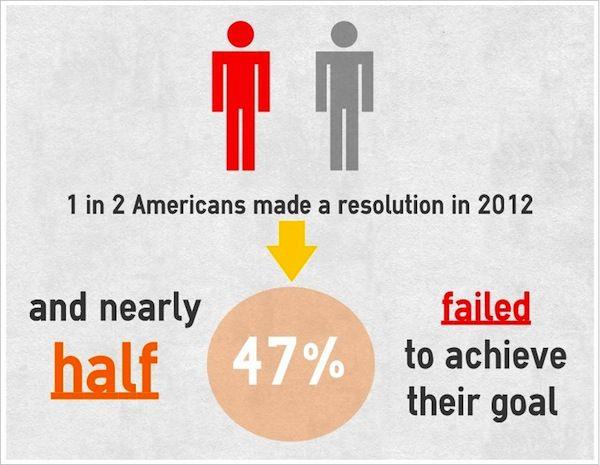Why do we break our New Year’s resolutions?

We are three times more likely to achieve our New Year’s resolutions if you do one thing: stick with it for the first 30 days, says a new study.The survey was conducted by global research firm Kelton on behalf of self-discipline expert Rory Vaden , author of the New York Times bestseller Take the Stairs: 7 Steps to Achieving True Success.
The study revealed that:
– One in two Americans made a resolution in 2012 – but nearly half (48%) gave up at some point.Nearly one-third (31%) of all resolution-makers admit they stopped following through within the first 30 days.
– But for those who made it past January 30th, more than three-quarters (76%) of them are still following through with their resolutions – they were three times more likely to succeed.
For those planning their 2013 resolutions, Vaden offers five tips for getting over the critical 30-day hump:
Pick one resolution – or pick none. Research shows that we suck at multitasking. If you have more than one resolution, you’re more likely to fail – so pick one resolution, or don’t bother at all.
Put a price tag on your failure. My friend promised his business partner over a thousand dollars if he didn’t achieve his personal resolution. Do you think he stuck to it? You bet.
Don’t measure your results – measure your efforts. To stay motivated, you must be relentless about making progress, while letting go of the demand for perfection. Focus on stellar efforts – not results.
Set a weekly alarm on your calendar. Once a week, evaluate the progress of your efforts (not results). If your resolution is to lose 20 pounds, don’t step on the scale. Instead, measure how well you stuck to your food guidelines or exercise goals during the past week.
Find a friend. Make sure you have an accountability partner, because while you are likely to lose your motivation at some point, it is much less likely that both you and your partner will feel unmotivated at the same time.


